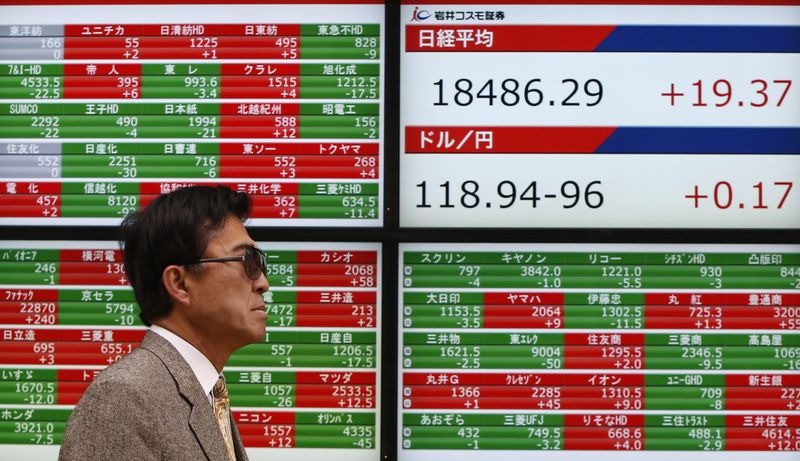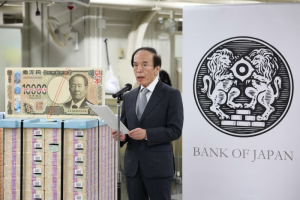Most Asian stocks moved in a flat-to-low range on Tuesday as investors remained on edge over the Iran-Israel conflict, especially after U.S. President Donald Trump called for the evacuation of Tehran.
Japanese stocks maintained their gains after the Bank of Japan left interest rates unchanged as widely expected. The central bank also outlined plans to slow its pace of tapering bond purchases from next year, heralding looser monetary conditions in the long term.
Regional markets largely brushed off a strong overnight lead-in from Wall Street, where U.S. benchmarks rebounded from Friday’s losses on strength in technology shares.
But S&P 500 Futures fell 0.4% in Asian trade, especially after Trump warned that Tehran should be evacuated, ramping up concerns over U.S. involvement in the conflict.
White House officials clarified that the U.S. was not planning to directly involve itself in the conflict, and that attempts at brokering a ceasefire were underway. But strikes between Israel and Iran showed few signs of stopping, as the renewed conflict entered a fifth consecutive day.
U.S. markets are also expected to be skittish before a Federal Reserve interest rate decision on Wednesday.
Japan stocks upbeat as BOJ holds rates, announces slower bond tapering Japan’s Nikkei 225 and TOPIX indexes added 0.6% and 0.4%, respectively, on some gains in local tech stocks. Mild weakness in the yen also supported export stocks.
3rd party Ad. Not an offer or recommendation by Investing.com. See disclosure here or remove ads. The BOJ kept interest rates unchanged at 0.5%, as widely expected. The central bank also said it will continue to buy government bonds over the next two years, and will slow the pace at which it is cutting its bond purchases from 2026.
Starting from April 2026, the BOJ will cut its bond purchases by about 200 billion yen per quarter, compared to its current rate of 400 billion yen per quarter. The move is likely aimed at maintaining market stability and more accommodative monetary conditions, amid heightened economic uncertainty.
Focus was now on an upcoming address by BOJ Governor Kazuo Ueda, who could potentially strike a hawkish tone amid sticky Japanese inflation and resilience in the economy.
Asian markets rangebound; geopolitics, c.bank uncertainty weigh Broader Asian markets moved in a flat-to-low range, seeing little relief from persistent geopolitical uncertainty. Anticipation of a barrage of central bank meetings this week also kept markets on edge.
Beyond the Fed and the BOJ, the Swiss National Bank, the Bank of England, and the People’s Bank of China are all set to decide on interest rates this week.
China’s Shanghai Shenzhen CSI 300 and Shanghai Composite indexes fell about 0.3% each, while Hong Kong’s Hang Seng index shed 0.4%.
Recent Chinese economic data read largely mixed for May, although ING analysts said the economy was on track to grow at least 5% in the first half of 2025.













